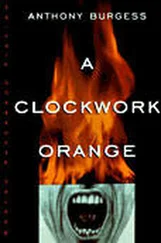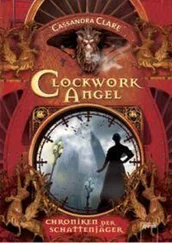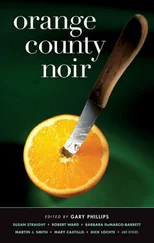Then after me it was right old Dim should have his turn, which he did in a beasty snorty howly sort of a way with his Peebee Shelley maskie taking no notice, while I held on to her. Then there was a changeover, Dim and me grabbing the slobbering writer veck who was past struggling really, only just coming out with slack sort of slovos like he was in the land in a milk-plus bar, and Pete and Georgie had theirs. Then there was like quiet and we were full of like hate, so smashed what was left to be smashed—typewriter, lamp, chairs—and Dim, it was typical of old Dim, watered the fire out and was going to dung on the carpet, there being plenty of paper, but I said no. “Out out out out,” I howled. The writer veck and his zheena were not really there, bloody and torn and making noises. But they’d live.
So we got into the waiting auto and I left it to Georgie to take the wheel, me feeling that malenky bit shagged, and we went back to town, running over odd squealing things on the way.
We yeckated back townwards, my brothers, but just outside, not far from what they called the Industrial Canal, we viddied the fuel needle had like collapsed, like our own ha ha ha needles had, and the auto was coughing kashl kashl kashl. Not to worry overmuch, though, because a rail station kept flashing blue—on off on off—just near. The point was whether to leave the auto to be sobiratted by the rozzes or, us feeling like in a hate and murder mood, to give it a fair tolchock into the starry watersfor a nice heavy loud plesk before the death of the evening. This latter we decided on, so we got out and, the brakes off, all four tolchocked it to the edge of the filthy water that was like treacle mixed with human hole products, then one good horrorshow tolchock and in she went. We had to dash back for fear of the filth splashing on our platties, but splussshhhh and glolp she went, down and lovely. “Farewell, old droog,” called Georgie, and Dim obliged with a clowny great guff—“Huh huh huh huh.”
Then we made for the station to ride the one stop to Center, as the middle of the town was called. We paid our fares nice and polite and waited gentlemanly and quiet on the platform, old Dim fillying with the slot machines, his carmans being full of small malenky coin, and ready if need be to distribute chocbars to the poor and starving, though there was none such about, and then the old espresso rapido came lumbering in and we climbed aboard, the train looking to be near empty. To pass the three-minute ride we fillied about with what they called the upholstery, doing some nice horrorshow tearing-out of the seats’ guts and old Dim chaining the okno till the glass cracked and sparkled in the winter air, but we were all feeling that bit shagged and fagged and fashed, it having been an evening of some small energy expenditure, my brothers, only Dim, like the clowny animal he was, full of the joys-of, but looking all dirtied over and too much von of sweat on him, which was one thing I had against old Dim.
We got out at Center and walked slow back to the Korova Milkbar, all going yawwwww a malenky bit and exhibiting to moon and star and lamplight our back fillings, because we were still only growing malchicks and had school in the daytime, and when we got into the Korova we found it fuller than when we’d left earlier on. But the chelloveck that had been burbling away, in the land, on white and synthemesc or whatever, was still on at it, going: “Urchins of deadcast in the way-ho-hay glill platonic time weatherborn.” It was probable that this was his third or fourth lot that evening, for he had that pale inhuman look, like he’d become a ‘thing,’ and like his litso was really a piece of chalk carved. Really, if he wanted to spend so long in the land, he should have gone into one of the private cubies at the back and not stayed in the big mesto, because here some of the malchickies would filly about with him a malenky bit, though not too much because there were powerful bruiseboys hidden away in the old Korova who could stop any riot. Anyway, Dim squeezed in next to this veck and, with his big clown’s yawp that showed his hanging grape, he stabbed this veck’s foot with his own large filthy sabog. But the veck, my brothers, heard nought, being now all above the body.
It was nadsats milking and coking and fillying around (nadsats were what we used to call the teens), but there were a few of the more starry ones, vecks and cheenas alike (but not of the bourgeois, never them) laughing and govoreeting at the bar. You could tell them from their barberings and loose platties (big stringy sweaters mostly) that they’d been on rehearsals at the TV studios around the corner. The devotchkas among them had these very lively litsos and wide big rots, very red, showing a lot of teeth, and smecking away and not caring about the wicked world one whit. And then the disc on the stereo twanged off and out (it was Johnny Zhivago, a Russky koshka, singing ‘Only Every Other Day’), and in the like interval, the short silence before the next one came on, one of these devotchkas—very fair and with a big smiling red rot and in her late thirties I’d say—suddenly came with a burst of singing, only a bar and a half and as though she was like giving an example of something they’d all been govoreeting about, and it was like for a moment, O my brothers, some great bird had flown into the milkbar, and I felt all the little malenky hairs on my plott standing endwise and the shivers crawling up like slow malenky lizards and then down again. Because I knew what she sang. It was from an opera by Friedrich Gitterfenster called ‘Das Bettzeug,’ and it was the bit where she’s snuffing it with her throat cut, and the slovos are ‘Better like this maybe.’ Anyway, I shivered.
But old Dim, as soon as he’d slooshied this dollop of song like a lomtick of redhot meat plonked on your plate, let off one of his vulgarities, which in this case was a lip-trump followed by a dog-howl followed by two fingers pronging twice at the air followed by a clowny guffaw. I felt myself all of a fever and like drowning in redhot blood, slooshying and viddying Dim’s vulgarity, and I said: “Bastard. Filthy drooling mannerless bastard.” Then I leaned across Georgie, who was between me and horrible Dim, and fisted Dim skorry on the rot. Dim looked very surprised, his rot open, wiping the krovvy off of his goober with his rook and in turn looking surprised at the red flowing krovvy and at me. “What for did you do that for?” he said in his ignorant way. Not many viddied what I’d done, and those that viddied cared not. The stereo was on again and was playing a very sick electronic guitar veshch. I said:
“For being a bastard with no manners and not the dook of an idea how to comport yourself publicwise, O my brother.”
Dim put on a hound-and-horny look of evil, saying: “I don’t like you should do what you done then. And I’m not your brother no more and wouldn’t want to be.” He’d taken a big snotty tashtook from his pocket and was mopping the red flow puzzled, keeping on looking at it frowning as if he thought that blood was for other vecks and not for him. It was like he was singing blood to make up for his vulgarity when that devotchka was singing music. But that devotchka was smecking away ha ha ha now with her droogs at the bar, her red rot working and her zoobies ashine, not having noticed Dim’s filthy vulgarity. It was me really Dim had done wrong to. I said:
“If you don’t like this and you wouldn’t want that, then you know what to do, little brother.” Georgie said, in a sharp way that made me look:
“All right. Let’s not be starting.”
“That’s clean up to Dim,” I said. “Dim can’t go on all his jeezny being as a little child.” And I looked sharp at Georgie.
Читать дальше












